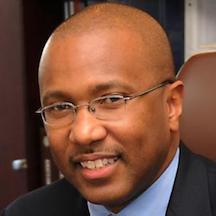 Harry Lee Williams, the president of Delaware State University, will step down from his post on January 20 in order to take on his new role as president and chief executive officer of the Thurgood Marshall College Fund. The organization represents and supports 47 public historically Black colleges and universities. Together these institutions enroll about 80 percent of all students who attend HBCUs.
Harry Lee Williams, the president of Delaware State University, will step down from his post on January 20 in order to take on his new role as president and chief executive officer of the Thurgood Marshall College Fund. The organization represents and supports 47 public historically Black colleges and universities. Together these institutions enroll about 80 percent of all students who attend HBCUs.
Dr. Williams came to Delaware State University in 2007 as provost and vice president for academic affairs. He was named the 10th president of the university in 2009. Before coming to Delaware State, Dr. Williams was the interim senior associate vice president for academic and student affairs for the University of North Carolina System.
In announcing his decision to leave Delaware State, Dr. Williams said that his time on campus was “the most defining decade of my professional life. The university and its community – students, staff, faculty, alumni, trustees – have given us more than we could have ever imagined.”
A native of Greenville, N.C., Dr. Williams earned a bachelor’s degree in communication and broadcasting and a master’s degree in educational media at Appalachian State University in Boone, North Carolina. He holds a doctorate in educational leadership and policy analysis from East Tennessee State University in Johnson City.

